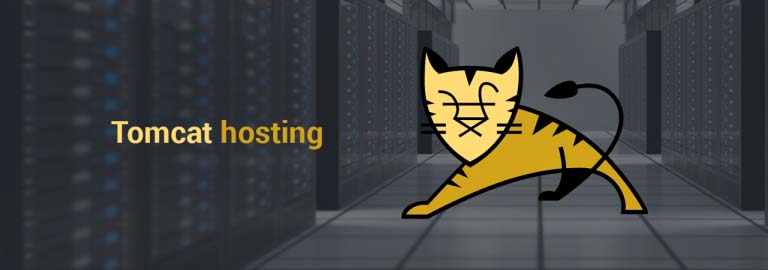Tomcat-based hosting is known by a number of different names, so don’t be confused if you come across it referred to as Apache Tomcat, Tomcat server, or even just plain old Tomcat – which is the term most used here to keep things simple.

What is Tomcat-Based Java Hosting?
Tomcat isn’t a traditional web server, technically it is a web container (or a Java Servlet container) which plays a dual role – able to interact with Java Servlets as needed but also to support tech specs like Java Server Pages (JSP), WebSocket and Java EL (Expression Language).
- Must Read: Best WordPress Hosting
Developed by the Apache Software Foundation, Tomcat is an open source web server and servlet container which uses JSP (JavaServer Pages) and the servlets to create a way for Java code to run efficiently.
What is a Java Servlet?
It’s a piece of software that makes it possible for a web server to deal with HTTP protocol Java-based content. JSP acts in a similar way, this time allowing those developing a website to use content in HTML and XML documents. For comparison’s sake, you could say that both JSP and Java Servlets are the equivalent to content created using ASP.NET or PHP, but they use Java programming language instead.
Who uses Tomcat-Based Java Hosting?
Tomcat is popular amongst web developers who are using Java software to create and maintain websites.
- Must Read: Best VPS Hosting
What are Some of the Advantages of Using Tomcat-Based Java Hosting?
- Tomcat allows all of these specialist Java-based items to work together in one package, which is a bonus for those working with Java exclusive web servers.
- Don’t assume that Apache Tomcat and Apache HTTPS Server deliver the same package of software, as despite having similar names the Apache HTTPS operates as a server for traditional (PHP type) web content, and this is unable to deal with JSP or Java Servlets, while in contrast Tomcat was designed to handle those perfectly. However, despite their different strengths, they can be used together, which is a major plus point if a project involves a mix of Java and PHP content. So the overall message here is that Tomcat is the obvious choice for an entire site built using JSP, and a good co-worker on mixed sites, however, it’s not a valid option for websites using only PHP language.
- You can use Tomcat to test applications which rely on Java tech, in this case, it is known as a development server.
- Tomcat allows Java apps to operate on both server and host-based systems.
- It’s easy to work with as it is open source there are plenty of people around who can help if you have questions, and of course, you are free to suggest or make changes for the better if you are able.
- It can deal with up to around 350 TPS (transactions per second), but if you need more you can share the load.
- An Apache Tomcat Server is the perfect way to run a Java coded website.
- Final Words
So now you should have a better understanding of Tomcat hosting and if you’re to upgrade to it. If you want to learn more and look for packages, you can do so on this website.



